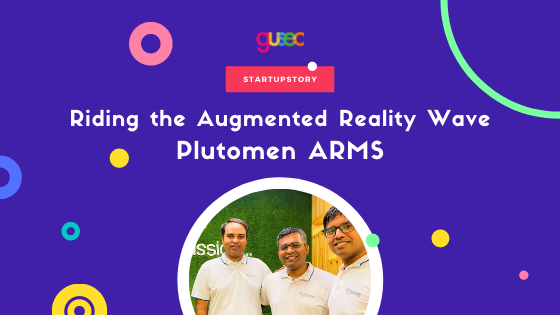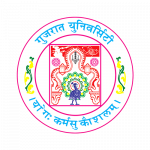Riding the Augmented Reality Wave: Plutomen ARMS

In 2016, a certain mobile game had everyone hooked to it. While it promoted physical activity and forced kids, teens and adults to get out of their homes, it also caused severe public nuisance and even accidents, besides bringing us a whole tsunami of memes. Yes, I’m talking about Pokemon Go. Known for its lucrative “catch ‘em all” feature, it acquainted users with Augmented Reality (AR) technology for the first time.
Identifying the Future
While AR and its associated technologies (Virtual Reality & Mixed Reality) are picking pace now, Keyur Bhalavat knew the technology’s true potential as early as 2012. He founded Oryden Techlabs, a design & technology company specialising in AR, VR, 3D and 2D design, and later pivoted it to act as an e-commerce platform for real estate. After Oryden got acquired by Squareyards, a real estate startup focusing on the NRI segment, Keyur, along with his co-founders Ravi & Hiren laid the groundwork for Plutomen & began exploring applications of AR in the industrial scenario.
The trio started with dedicating a considerable amount of time to understand how AR was moving in various sectors and aimed to find their own niche to add value to the technology. Initially only in use in the education, real estate and gaming sector, by early 2019 the Plutomen team realised that the ROI would only come from its usage in the industry domain. They started creating products in the same domain and made it their mission to help enterprises improve productivity, extend their workforce capability and ultimately enhance customer satisfaction.
Achieving Newer Heights
To solve existing problems caused by complicated machinery mechanisms that make it hard to demonstrate to operational managers and technical engineers, as well as compensating for the lack of efficient technologies to train service field engineers, Plutomen launched ARMS, an AR-based remote collaboration platform for frontline engineers and offsite employees. ARMS allows enterprises to intervene remotely and carry out ordinary maintenance procedures in real-time and enables collaboration between workers and features real-time 3D annotations to help teams solve problems with no extra relocation costs.
Even though Plutomen set out to solve the aforementioned problems, the startup’s vision for AR technology found new utility when the Coronavirus pandemic hit. With all work shifting to remote, Plutomen began getting customer feedback for their products and perfecting their offering, as a result of which, they’ve piloted their beta version with over 30 companies so far. Enhancing their product through the beta pilots, they launched it for commercial use earlier this year.
“Currently, AR is on a wave that is still emerging and is being adopted aggressively due to the pandemic. We’re still at a pre-revenue stage and weren’t mature enough to raise seed support, and therefore decided to raise pre-seed investment. We were able to align with a lot of HNIs, with GUSEC helping us get things in line, as a result of which, we were recently able to raise USD 300,000 in funds.
Importance of a Startup Community
When asked why should a startup founder get incubated, Keyur had many insights to offer. “Say I’m a first-time entrepreneur facing problems with my startup. There are tons of things I have no idea about. I need all the help I can get, and a startup incubator is a great first stepping stone in the right direction. If you’re on your own, you may gradually begin to slack off. A startup incubator holds you accountable, and takes care of everything, from helping you make better pitch demos to getting you important resources and insights. When you’re a part of a startup community, you make friends in the same journey as you – friends you can get honest opinions from, friends who learn from each other’s mistakes, and will tell you if your offering sucks. It was because of friends like those I met at GUSEC that helped me not be entirely alone in my journey – because being an entrepreneur can get pretty reclusive.”
Keyur says that one needs to know how to leverage support from an incubator. “As an entrepreneur, you should know what you need to ask for before you ask for it. If you don’t know what you’re looking for, nobody can help you find it.”
Solving Problems over Chasing Technology
“I’ve always been a tech enthusiast, but I also believe that technology and product are not important, but business use-case and value proposition are. Understand the pain point of your customer, align yourself with it, and create a product out of it, do not get attached to your product.”
What’s in a name?
More than you’d think. Explaining the rationale behind naming his startup Plutomen, Keyur says, “Pluto is an extraordinary planet, given the fact that it has always raised debate on its status as a planet. As a team, our goal has been to achieve something extraordinary, make way to an otherwise unreachable place. We drive towards goals otherwise perceived as difficult, and we let that show in our name.” Keyur’s enthusiasm for space doesn’t end there and is pretty apparent in their logo, which depicts an outbound spaceship. “I’m a space enthusiast alright, but not as much as my wife. I’m more of a technology aficionado, which is why at Plutomen we’re guided by our motto – new never ends.”




